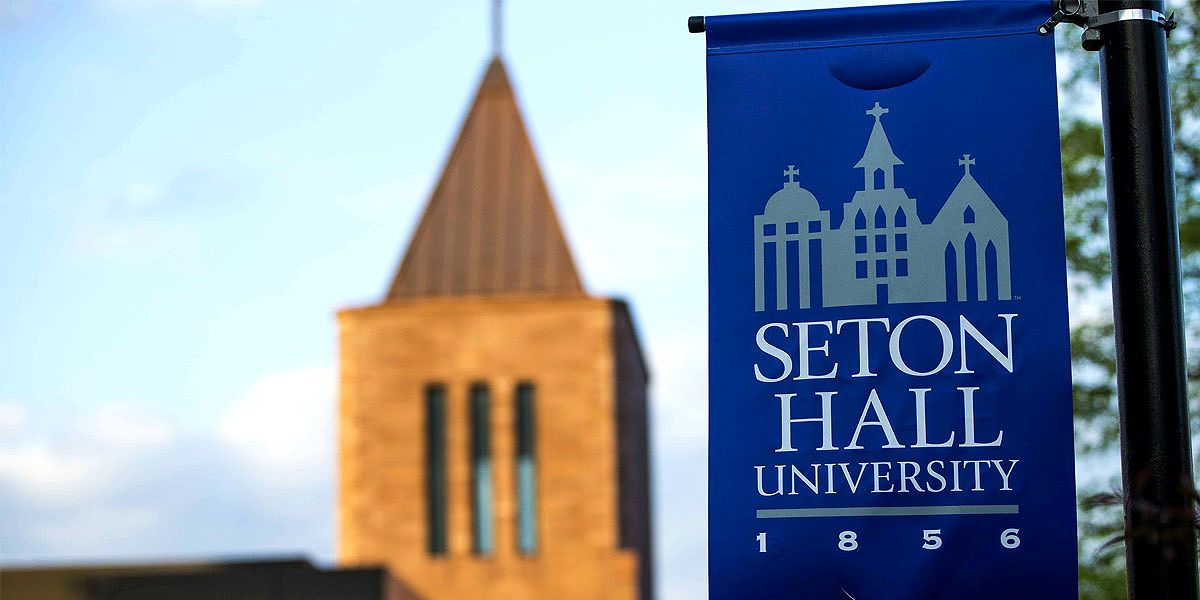Seton Hall University's Teaching, Learning, and Technology Roundtable (TLTR) recently held its annual kick-off event to discuss emerging technology issues and trends in education. The event highlighted the importance of leveraging technology for innovative educational experiences and student success.
Shaping the Future of Education: Seton Hall University's Annual Kick-off Event
Seton Hall University's Teaching, Learning, and Technology Roundtable (TLTR) recently held its annual kick-off event, bringing together faculty members, administrators, staff, and students to discuss emerging technology issues and trends in education. With a focus on shaping the University's technology goals and priorities, the event was attended by over 30 participants.
During the kick-off event, TLTR Co-Chairs Paul Fisher and Renee Robinson, Ph.D., provided an overview of the TLTR's mission, as directed by the Provost. They emphasized the importance of navigating emerging technology issues and aligning technology goals with the University's strategic priorities. The event also featured the introduction of the three vital committees: Artificial Intelligence, Online Learning, and Emerging Trends in Ed. Tech.
Artificial Intelligence Committee: Researching the Effects of AI on Higher Education
The Artificial Intelligence Committee, led by Ruchin Kansal and Jessica Rauchberg, aims to research the effects of AI on higher education, develop policies, and explore its implications for the future workplace. This committee recognizes the transformative potential of AI in education and seeks to harness its power for innovative educational experiences.
With the rapid advancement of AI technology, it is crucial for Seton Hall University to stay at the forefront of these developments. The committee will conduct in-depth research to understand how AI can enhance teaching and learning, improve student outcomes, and prepare students for the evolving job market.
Online Learning Committee: Establishing Policies for Timely Reviews of Online Courses
The Online Learning Committee, led by Mary Ellen Roberts, aims to establish policies and processes for timely reviews of online courses in compliance with university guidelines. As online learning continues to play a significant role in higher education, it is essential to ensure the quality and effectiveness of these courses.
The committee will work closely with faculty members and administrators to develop a comprehensive framework for evaluating online courses. This framework will consider factors such as course design, instructional methods, student engagement, and assessment strategies. By establishing clear guidelines, the committee aims to maintain high standards in online education at Seton Hall University.
Emerging Trends in Ed. Tech Committee: Promoting High-Quality and Innovative Education
The Emerging Trends in Ed. Tech Committee, chaired by Christine Lhowe and Renee Cicchino, focuses on creating a vision for technology usage in teaching and learning to promote high-quality and innovative education. This committee recognizes the importance of staying abreast of emerging trends in educational technology and leveraging them to enhance the learning experience.
The committee will explore various emerging technologies, such as virtual reality, augmented reality, and gamification, to identify their potential applications in education. By conducting research, sharing best practices, and providing guidance, the committee aims to empower faculty members and students to embrace innovative technologies and transform the teaching and learning process.
Innovative Approaches to Teaching and Learning
The kick-off event also featured two faculty members who showcased their innovative approaches to teaching and learning through emerging technologies. Dr. Leslie Rippon demonstrated a collaboration with VictoryXR to develop an emergency preparedness simulation for first-year Interprofessional Education students. This mixed-reality scenario immerses students in a team-based response to a mass disaster, enhancing their clinical protocols and interprofessional communication skills.
Dr. Wyatt Murphy showcased the use of ChatGPT in the General Chemistry Laboratory to enhance student learning. This innovative approach allows students to augment their learning experience through interactive chat interactions. Both demonstrations exemplify the TLTR's commitment to leveraging technology for innovative educational experiences and student success.
Engaging the Seton Hall University Community in Educational Technology
The TLTR encourages all members of the Seton Hall University community to stay engaged and participate in TLTR-sponsored events and initiatives. These events provide valuable opportunities for learning, collaboration, and innovation in the field of educational technology. Whether interested in exploring artificial intelligence, online learning, or emerging educational technologies, the TLTR offers a platform for meaningful discussions about the transformative potential of technology in higher education.
Established in 1995, the TLTR is a consortium of faculty, administrators, and students representing various academic and administrative areas of the University. Sponsored by the Office of the Provost and the Department of Information Technology, the TLTR meets regularly to discuss instructional technology-related issues. The 2023-2024 committees include the Artificial Intelligence Committee, the Emerging Trends in Tech Committee, and the Online Learning Committee.
Conclusion
In conclusion, Seton Hall University's annual kick-off event for the Teaching, Learning, and Technology Roundtable (TLTR) brought together stakeholders to discuss emerging technology trends and shape the University's technology goals. The event highlighted the importance of leveraging technology for innovative educational experiences and student success. The TLTR continues to provide a forum for meaningful discussions and collaborations in the ever-evolving field of educational technology.

